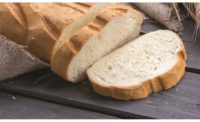Ingredion Incorporated, a global provider of ingredient solutions to diversified industries, announced that two of its dietary fibers, VERSAFIBE 1490 and NOVELOSE 3490, have been recognized by Monash University as Low FODMAP Certified products in the U.S. The certification is awarded to products and ingredients that are low in fermentable oligosaccharides, disaccharides, monosaccharides and polyols (FODMAP). Products that receive this certification are licensed to use the official Monash University Low FODMAP Diet badge – making it easier for manufacturers and consumers to identify ingredients and products that help support digestive health while following a low FODMAP diet.
FODMAPs are short-chain carbohydrates commonly found in American diets. Certain foods containing FODMAPs can trigger occasional digestive discomfort, including gas, bloating and altered bowel habits. According to the Monash University website, a low FODMAP diet can be an effective way to help manage digestive wellness.
The low FODMAP diet is quickly gaining momentum in the food industry and consumers are beginning to take notice. Ingredion’s August 2019 quantitative study of more than 750 U.S. participants revealed that consumers have a great interest in foods that help support digestive health, providing manufacturers with a unique opportunity to be at the forefront of this growing trend at its early stages. The study also revealed that when introduced to low FODMAP product lines, 68 percent of participants felt low FODMAP products were good for digestive health and 53 percent said they would be very likely to purchase low FODMAP foods (based on a top-two box score of “agree” and “strongly agree”).
“The low FODMAP certification is already spurring new, innovative products from major food brands – expanding the potential of this diet from niche to mainstream markets,” said Michael DiMarcello, Ingredion’s global director, strategic marketing. “VERSAFIBE 1490 and NOVELOSE 3490 dietary fibers give manufacturers two new options that align with a low FODMAP diet and address increased consumer demand for products that support digestive wellness.”








